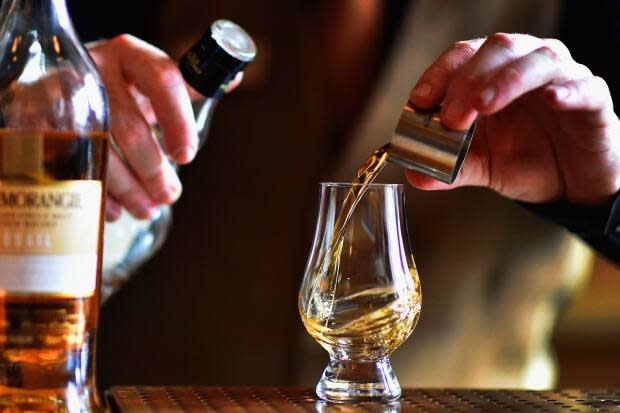Researcher says only 25% of Canadian drinkers know alcohol causes cancer. A B.C. campaign wants to change that
Many people don't know that alcohol can cause cancer. Now you do.
This sobering message from Fraser Health Authority appeared Monday on ads in Lower Mainland transit stations and vehicles, restaurants and bars and on the agency's social media platforms.
It's all part of the health agency's new Now You Know campaign to educate people about the cancer risks associated with alcohol consumption.
Ingrid Tyler, Fraser Health medical officer and campaign lead, said of all the various harms from alcohol, people are least aware of the link between it and cancer.
"It's something that hasn't come up in our cultural discourse," said Tyler. "I really hope this campaign will jumpstart a discussion."
According to Adam Sherk, researcher with the Canadian Institute for Substance Use Research at the University of Victoria, only about 25 per cent of Canadian drinkers know that alcohol causes cancer.
"The alcohol-cancer link is probably the major component missing right now in our knowledge as a public about the health harms of alcohol,' said Sherk.

According to the World Health Organization, the main carcinogenic component of alcohol is ethanol which damages cells and can affect female hormones, increasing the risk of breast cancer.
Fraser Health's website notes drinking any amount of alcohol can increase the risk of mouth, pharynx and larynx, oesophagus and breast cancer, two or more drinks a day can raise the risk of bowel and colon cancer and three or more a day increases the risk of stomach and liver cancers.
Tyler said the recommended standard is six drinks a week and the more alcohol consumed by people between the ages 20 and 50 the higher the risk of many cancers after age 50.
The campaign includes tips on how to reduce consumption and manage peer pressure in social situations.
"We find this is a good time of year when people are looking at their habits,'" said Tyler. "We hope our messaging will help normalize non-drinking behaviour and decrease cancer risks."
The campaign will run until March 2020.

